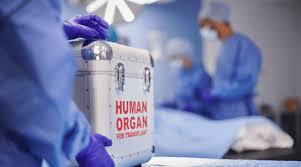
Preparing for Organ Transplantation: Top 6 Practical Tips for Older Patients and Their Caregivers
Organ transplantation can be life-changing, especially for older patients. It offers the prospect of renewed health and vitality, as well as improved quality of life. However, this transformative journey also brings with it a range of concerns, from the complexities of medical procedures to emotional and psychological challenges that may arise. As such, patients will need the support of their caregivers during this overwhelming time to help alleviate their worries and foster a sense of security.
Nevertheless, if the patient and the caregiver aren’t ready to face the potential hurdles ahead, the operation can take a toll on their physical, mental, and emotional health. Therefore, they need to prepare for the transplantation so that they can employ strategies that can help ensure the success of the procedure and the patient’s recovery.
In this article, we’ll explore practical tips to help them approach this new chapter with confidence and hope.
For the Patient and Caregiver
Learn More About the Transplant
When preparing for a significant medical procedure like an organ transplant, knowledge is power. Patients and caregivers who understand what happens during the surgical procedure, as well as its potential risks and recovery expectations, are better equipped to make informed decisions. This information also helps older patients feel less apprehensive about the surgery. Moreover, it ensures caregivers can provide the right support throughout the process.
One of the easiest and most accessible ways to learn more about specific transplant procedures is by using online resources and literature. Many reputable medical websites and journals go into detail about different organ transplants, providing valuable insights that patients can learn from. To enhance understanding of the transplantation process even further, patients and caregivers can seek information from medical professionals, transplant centres, and support groups. For instance, they can consult with a transplant surgeon stationed at an establishment known for providing organ transplant Singapore citizens trust to learn more about the process and stages of recovery after transplant.
Ask Questions During Consultations with the Transplant Team
Before the transplantation proceeds, there will be plenty of consultations and checkups to set expectations and figure out other crucial information. These sessions are particularly important for older patients, who may have underlying conditions or whose immune systems have been compromised.
Patients and caregivers should take the opportunity to ask questions during these meetings to clarify any uncertainties about the transplant process. This ensures that all parties are on the same page about the specifics of the treatment and recovery. Some important questions may include inquiries about the donor organ, the surgical procedure, recovery timelines, and post-operative care.
Furthermore, patients and caregivers shouldn’t hesitate to seek clarification on complex medical terminologies discussed. Clarifying these terms ensures they can fully understand the diagnosis, which can help them be more engaged in the process.
For the Patient
Consider Seeking a Second Opinion
When facing a decision as significant as organ transplantation, seeking a second opinion can provide invaluable reassurance. It allows patients to confirm the initial diagnosis and treatment plan, which can help in feeling more secure about making health-related choices. A second opinion can also introduce alternative approaches or additional information that may not have been considered initially. This practice not only empowers patients, but also helps them feel more confident in their decision-making.
Engage in Light, Pre-Transplant Exercise
According to research, prehabilitation—which is essentially light pre-transplant exercise, such as walking and gentle stretches—can enhance the patient’s cardiovascular health, improve stamina, and prepare the body for the physical demands of surgery and recovery. Before engaging in any type of exercise, however, older patients should consult their transplant team to assess their fitness. If the patient is found suitable to engage in light physical activity, the transplant team can then recommend appropriate activities based on their current health status.
For the Caregiver and Family Members
Research Post-Transplant Care
Understanding post-transplant care is crucial for caregivers, whether they’re family members or otherwise, as it enables them to provide the best possible support to the patient after surgery. Post-transplant care can involve a range of responsibilities, including proper medication management, monitoring for signs of rejection, and recognising potential complications. By researching these aspects, caregivers will feel more prepared and confident in their role.
In addition to this, caregivers and family members should take the initiative to learn about the specific needs of the patient, including dietary restrictions, activity levels, and follow-up appointment schedules. Furthermore, they should maintain open communication with the transplant team to ensure that they receive the necessary guidance and resources to facilitate the patient’s recovery.
Prepare the Home Environment
The condition of an older patient’s home environment is vital for the success of their recovery post-transplant. After the procedure, they require a clean and safe space to reduce the risk of infections while they recover. Their home environment must also be comfortable to ensure that they can rest properly. Thus, caregivers should consider making home modifications to promote the recovery of their patients. For example, they can place non-slip rugs or mats in high-traffic areas like the bathroom, kitchen, and hallways to reduce the risk of falls. They can also use pressure-relief mattresses or seat cushions to prevent bedsores for patients who may be bedridden or seated for long periods.
Preparing for an organ transplant, as well as its postoperative care, requires active participation from both the patient and their caregiver. Although the journey towards the surgical procedure can be daunting, these tips can help both parties navigate this critical time with greater confidence and ease.